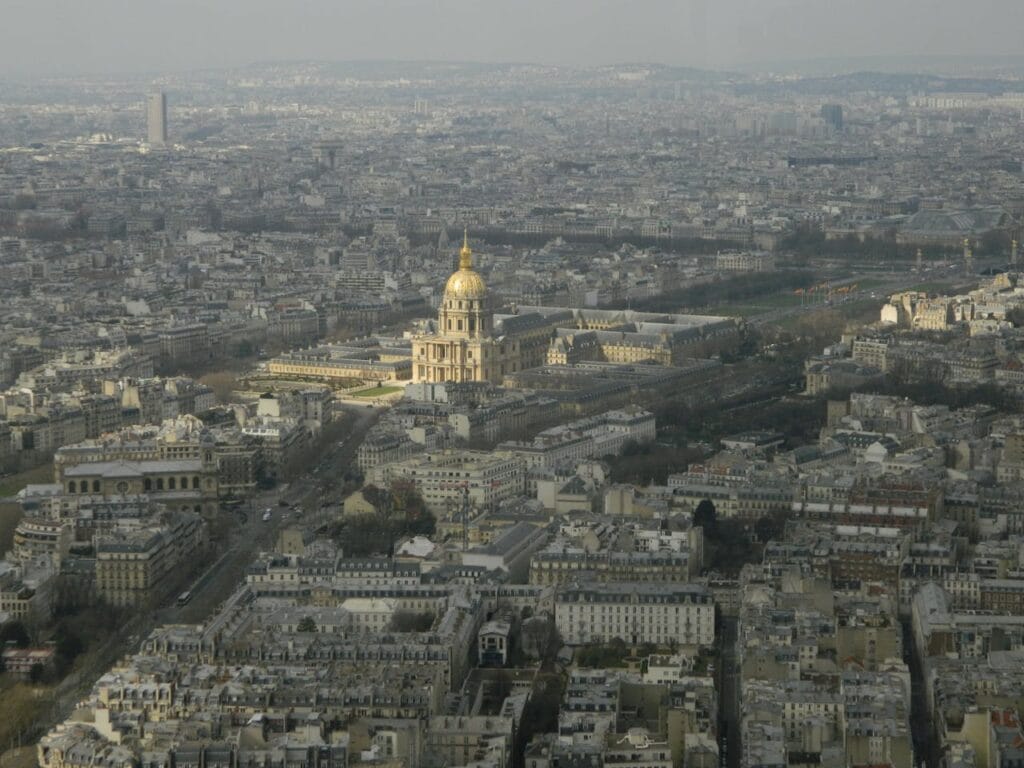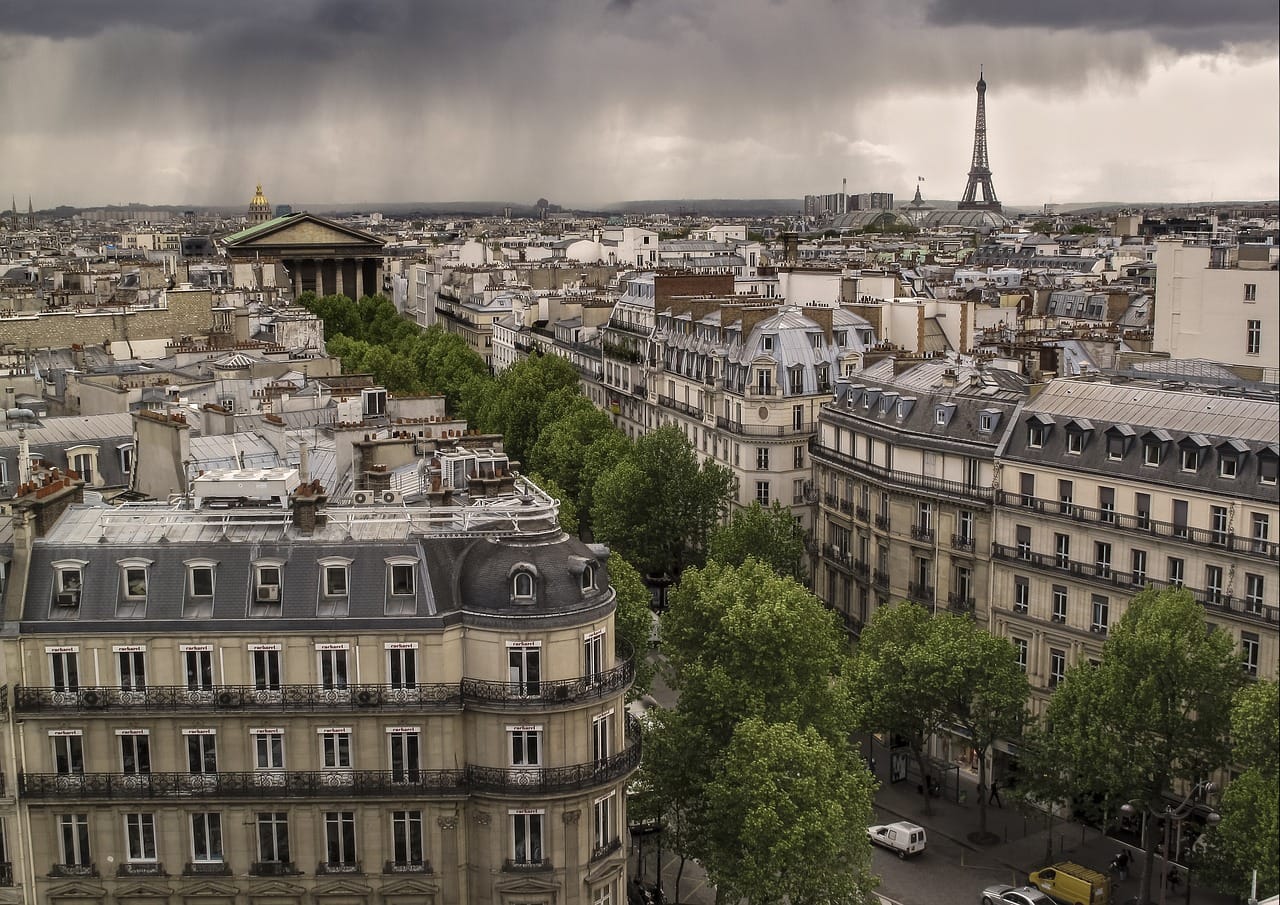There are popular publications on the Internet that Japanese people visiting the French capital complain so often about the so-called Paris syndrome that the Japanese Embassy had to open a 24-hour psychological help line for compatriots. We decided to check if this is true.
Portals write about the unusual measures of support for Japanese tourists that the country's embassy in Paris is ready to provide them with. travel And psychology, informational And entertaining resources, Media, social network users (“VKontakte", Facebook*, Instagram*, X) And blogging platforms. The authors of the publications report that the Japanese, as a rule, come to the French capital with a highly romanticized image of the city, based on books and films. When they are faced with harsh reality, they experience such a deep shock that they cannot cope with it without the help of specialists. It is this psychological state that is called the Paris syndrome.
Paris syndrome does not appear in the pages of the International Statistical Classification of Diseases and Related Health Problems (ICD) or other medical reference books. However, researchers note, that this is not a fictional disorder, but a kind of culture shock: a traveler comes to a new place, having romantic ideas about it, but the reality turns out to be completely different. In this state, a person may experience increased anxiety, nausea, and even hallucinations.
This syndrome can occur in tourists visiting any place, and not exclusively Paris. It is named so because it was first described by a Japanese psychiatrist, Hiroaki Ota, who worked in France. In 2004, he, together with a group of French psychologists, published a scientific paper article, dedicated to the phenomenon of acute psychological reaction of the Japanese to visiting Paris. Since 1988, 63 Japanese patients have been hospitalized for anxiety, delirium, and mania (or even suicide attempts). Moreover, some of them behaved so inappropriately that they were taken to medical institutions at the request of third parties. In all cases, hospitals contacted the Japanese Embassy, where Ota worked as a consultant psychiatrist. 18 people were repatriated by the embassy, since their condition did not allow them to return home on their own; relatives had to come for 28 patients.
Despite the romantic flair around Paris, popularized by mass culture, in reality this city does not always greet tourists with the aroma of croissants or the atmosphere of falling in love. The capital of France has more than once been among the leaders in the ratings of the most rough cities Europe or most unfriendly cities peace. Therefore, apparently, it is in Paris that the contrast between expectations and reality is so striking. At the same time, in his work, Ota notes that among the Japanese, the romantic image of Paris is even more idealized - for a long time Japan existed in isolation, and local residents associated a trip to this city with a rapprochement with the Western world, which was also largely idealized.

Indeed, the media periodically appear news that tourists from Japan were so shocked by the realities of the French capital that they were forced to urgently leave and/or seek psychological help. In 2006, the BBC reported, that such travelers are recruited on average up to 12 people annually. In the same article, the journalist noted that the Japanese Embassy in France has opened a 24-hour psychological help hotline for its citizens who are faced with culture shock after arriving in Paris. Where exactly to call and where this information was obtained from was not specified. Apparently, it was after this publication that the news spread across the Internet and users continue to discuss it even almost two decades later.
“Verified” could not be found on the site Japanese embassy in France, information about the supposed hotline - there are no contacts or relevant announcements. At the same time, a refutation was published there some time ago (now there is no such page, but it has been preserved archival copy): “Despite erroneous information published/quoted in various media, the Japanese Embassy in France reports that it does not have a telephone service dedicated to the so-called Paris syndrome and will not answer any questions on this topic.” Since the embassy representatives mention that the information is erroneous and not irrelevant, we can conclude that such a support service never existed.
Thus, a 24-hour psychological helpline for Japanese tourists who experienced culture shock in Paris does not exist at the Japanese Embassy and, apparently, never existed. At the same time, there really is such a phenomenon as the Paris syndrome, and, judging by media reports, the Japanese actually often encounter it. However, such a culture shock can be experienced by a tourist of any nationality in any country, because it is caused by the unrealistic expectations of the traveler. Paris stands apart here only because of its reputation, romanticized in popular culture.
Cover photo: pixabay.com
*Russian authorities consider the company Meta Platforms Inc., which owns the social networks Facebook and Instagram, to be an extremist organization; its activities in Russia are prohibited.
Read on the topic:
- National Geographic. Real ‘culture shock’ is rare—and can be serious
- Factcheck.kz. Is there a hotline at the Japanese Embassy in Paris for those affected by the “Paris syndrome”?
- Is it true that in Japan the husband's salary is transferred to the wife's account?
- Rats, bedbugs, tuberculosis and financial problems. Russian propaganda fakes about the Olympics in Paris
If you find a spelling or grammatical error, please let us know by highlighting the error text and clicking Ctrl+Enter.






